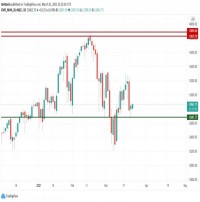
Lauren Teigland-Hunt Opalesque Industry Update - The collapse of MF Global is proving significant for reasons other than its being one of the ten largest bankruptcies in U.S. history, according to attorneys at Teigland-Hunt LLP. In a client alert (attached) the law firm says liquidation of MF Global will require the unprecedented application of two vastly different bankruptcy and customer asset protection regimes that lack harmonization. “The insolvency regimes for U.S. broker-dealers and commodity brokers protect customer assets in very different ways and have never been harmonized despite calls to do so in the wake of Lehman’s collapse,” says Lauren Teigland-Hunt, managing partner. “MF Global represents the first significant liquidation of a brokerage firm that was jointly registered as a broker-dealer with the SEC and a commodity broker with the CFTC.” The distinctions between the insolvency regimes for broker-dealers and commodity brokers can be summarized as follows:
The conflicts between the securities and futures regimes for insolvent brokers were nearly put to the test when Lehman Brothers Inc. (“LBI”)—also a dually registered BD/FCM—failed in 2008. Teigland-Hunt says a potential crisis was avoided, however, because the sale of LBI’s futures business to Barclays Capital was arranged shortly before LBI’s liquidation proceeding was commenced by SIPC on September 19, 2008. As a result, the trustee for the LBI liquidation (who happens to be the same trustee for MF Global) applied only the SIPC regime when unwinding LBI and did not contend with applying the CFTC insolvency regime for FCMs simultaneously. “The potential impact of malfeasance on customer recovery from a BD/FCM is just one of the issues that these conflicting regimes fail to address with clarity,” says Ms. Teigland-Hunt. “For example, if customer funds were inappropriately diverted from an insolvent broker’s futures customer accounts but not the securities customer accounts, should futures customers bear the resulting losses alone and spare securities customers the consequences of such behavior? Or should customers of a failed BD/FCM share ratably in losses induced by fraud?” With over 40 of the 50 largest FCMs also registered as broker-dealers, the failures of MF Global and LBI underscore the importance of revisiting the potential benefits of developing a more consistent customer asset protection regime that balances the interests of protecting customer assets as well as the integrity of the financial markets in the event of the failure of a major brokerage firm. Press Release bc |
Industry Updates
MF Global liquidation presents unprecedented test of US bankruptcy regime for dually registered brokers
Tuesday, November 22, 2011
|
|





 RSS
RSS







